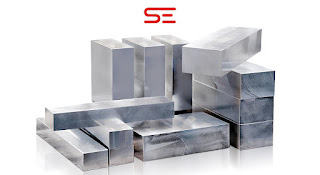What Are The Different Types Of Machined Plates?

Machined Plates are used in various industries and applications, and they come in different types depending on the materials, specifications, and intended use. Here are some common types of Machined Plates : 1. Aluminium Plates: These plates are often lightweight, corrosion-resistant, and have good thermal conductivity. They find applications in aerospace, automotive, and other industries. 2. Steel Plates: Steel Plates are robust and versatile. They are used in construction, manufacturing, and various industrial applications due to their strength and durability. 3. Stainless Steel Plates: Known for their corrosion resistance, stainless steel plates are commonly used in industries such as food processing, pharmaceuticals, and chemical processing. 4. Brass Plates: Brass plates offer good corrosion resistance and have aesthetic appeal. They are used in applications where a combination of corrosion resistance and visual appearance is important. 5. Copper Plates: Copper plat...

